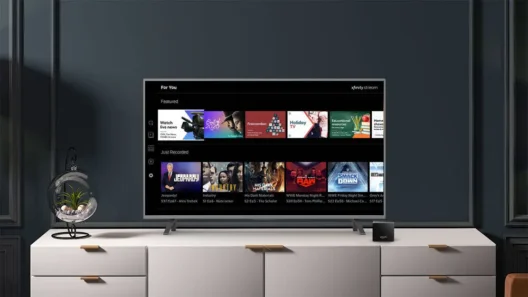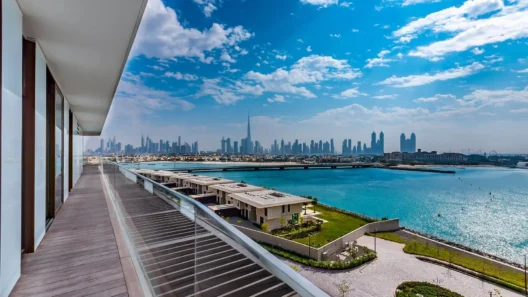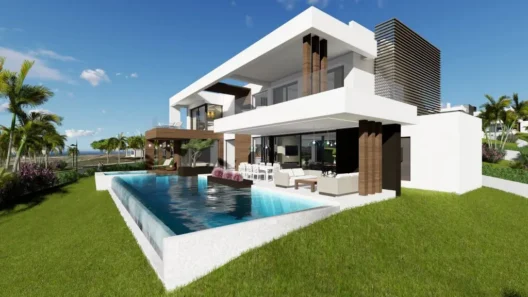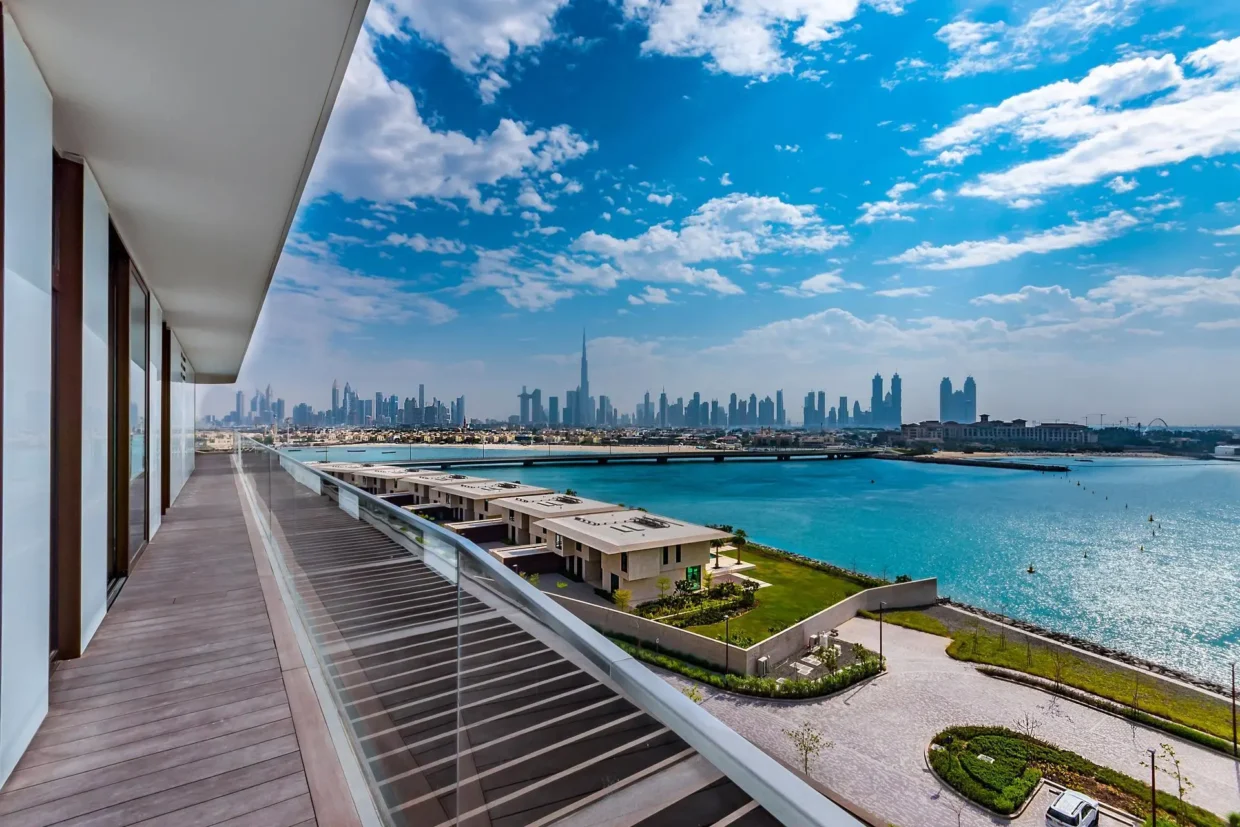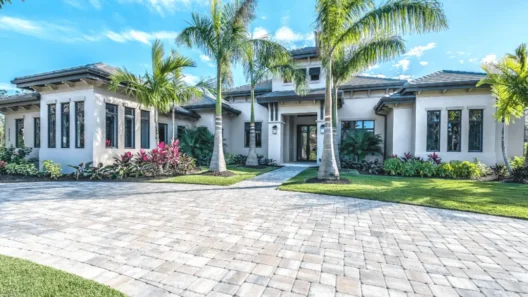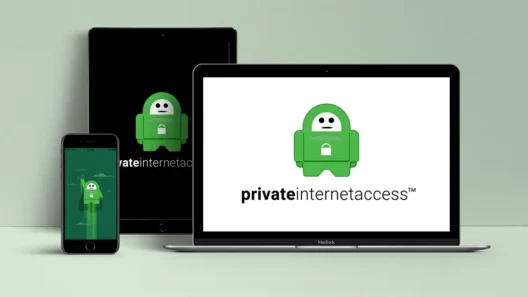Dubai has become one of the world’s most attractive destinations for foreign real estate investors. From tax-free rental income and strong capital appreciation to long-term residency through property ownership, the UAE offers unique advantages.
But before making the leap, there are key legal, financial, and strategic factors that every international buyer needs to understand.
1. Can Foreigners Buy Property in Dubai?
Yes – foreigners can legally buy, own, sell, and lease real estate in Dubai’s designated freehold zones. This right was granted under Law No. 7 of 2006 and applies to individuals and entities, including overseas companies and trusts.
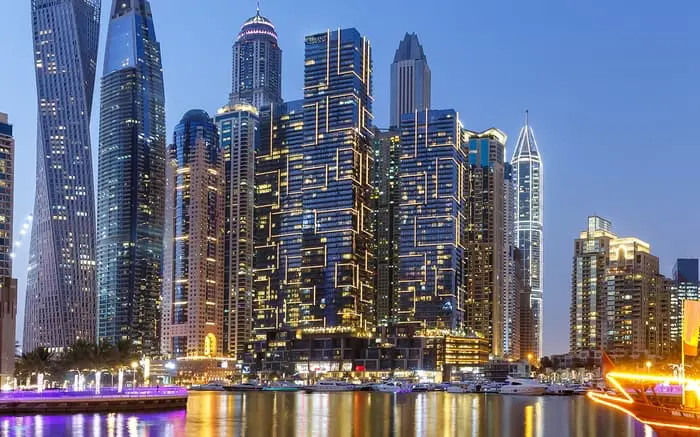
Freehold vs Leasehold
- Freehold: You fully own the property and the land it sits on.
- Leasehold: You lease the property for a fixed period (up to 99 years) but do not own the land.
Freehold areas include:
- Downtown Dubai
- Dubai Marina
- Palm Jumeirah
- Jumeirah Village Circle (JVC)
- Business Bay
- Dubai Hills Estate
Leasehold areas are typically limited and less common in new developments.
2. What Is the Buying Process in Dubai?
Here’s a simplified breakdown of the buying process for foreigners:
Step 1: Select a Registered Property Broker
Always work with an agent registered with the Real Estate Regulatory Authority (RERA). Check their license online via the Dubai Land Department (DLD) portal.
Step 2: Make an Offer and Sign the MoU
Once you agree on the price, both parties sign a Memorandum of Understanding (Form F). You’ll typically pay a 10% deposit, held in trust.
Step 3: Apply for No Objection Certificate (NOC)
The developer must issue an NOC confirming that the seller has no outstanding service charges. This is needed before transferring ownership.
Step 4: Transfer Ownership at DLD
The final transfer happens at a trustee office under the DLD. You’ll receive a new Title Deed, and the transaction becomes legally binding.
3. How Much Are the Total Fees?
| Fee Type | Cost Estimate |
|---|---|
| DLD Transfer Fee | 4% of property value |
| Title Deed Registration | AED 540 |
| Trustee Office Fee | AED 2,000–4,000 |
| Agency Commission | Usually 2% of property price |
| Mortgage Registration Fee | 0.25% of loan amount |
| Oqood Registration (off-plan) | 4% of purchase price |
Total transaction costs usually range between 6–8% of the property value, excluding mortgage fees.
4. Mortgage Options for Foreigners
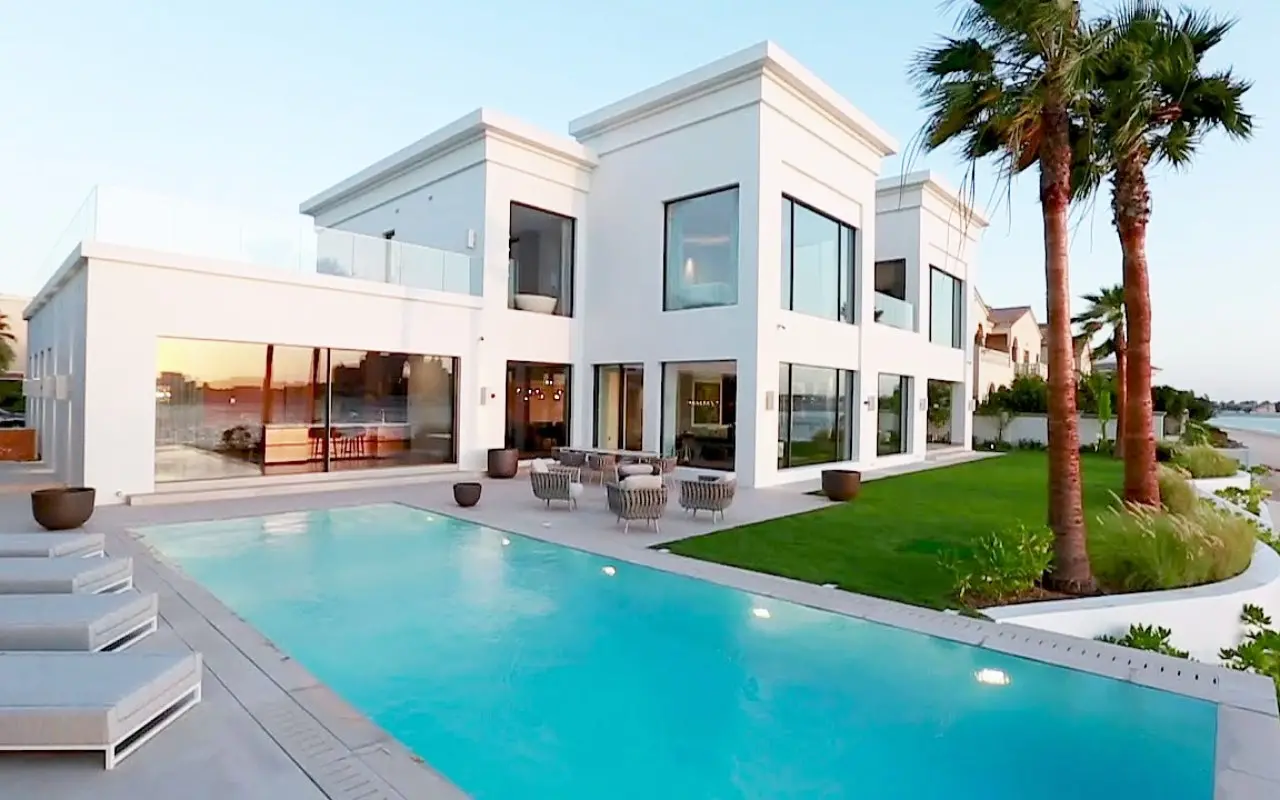
Expats can access mortgages from local UAE banks, subject to approval.
Basic Requirements:
- Minimum 25% down payment (ready property)
- Minimum 50% down payment (off-plan property)
- Proof of income or business license
- Maximum loan term: 25 years
- Monthly installments cannot exceed 50% of income
Interest rates typically float between 5.5–6.5%, depending on the lender and loan type.
Security tip: When sending documents such as income proofs or bank statements from abroad, use a trusted VPN to secure your connection—especially if you’re on hotel or café Wi-Fi. Providers like NordVPN offer encrypted tunnels for secure international transactions.
5. Investing in Off-Plan Projects
Buying off-plan (under-construction) property is popular due to lower prices and flexible payment plans. However, it carries risks.
What to Know:
- All payments must go into project-specific escrow accounts
- Projects must be registered with RERA
- You’ll receive an Oqood certificate, which proves ownership before handover
- Payment schedules are linked to construction progress
Stick to RERA-approved developers with a strong track record. Always read the payment schedule and cancellation clauses carefully.
6. What Are Service Charges?
After buying, you’ll pay annual service charges for the building’s maintenance, security, cleaning, and amenities.
| Property Type | Avg. Service Charge (AED/sq ft) |
|---|---|
| Budget Apartments | 10–15 AED/sq ft |
| Mid-Range Units | 15–20 AED/sq ft |
| Luxury Projects | 25–35+ AED/sq ft |
Service charges are published by the DLD and vary by community.
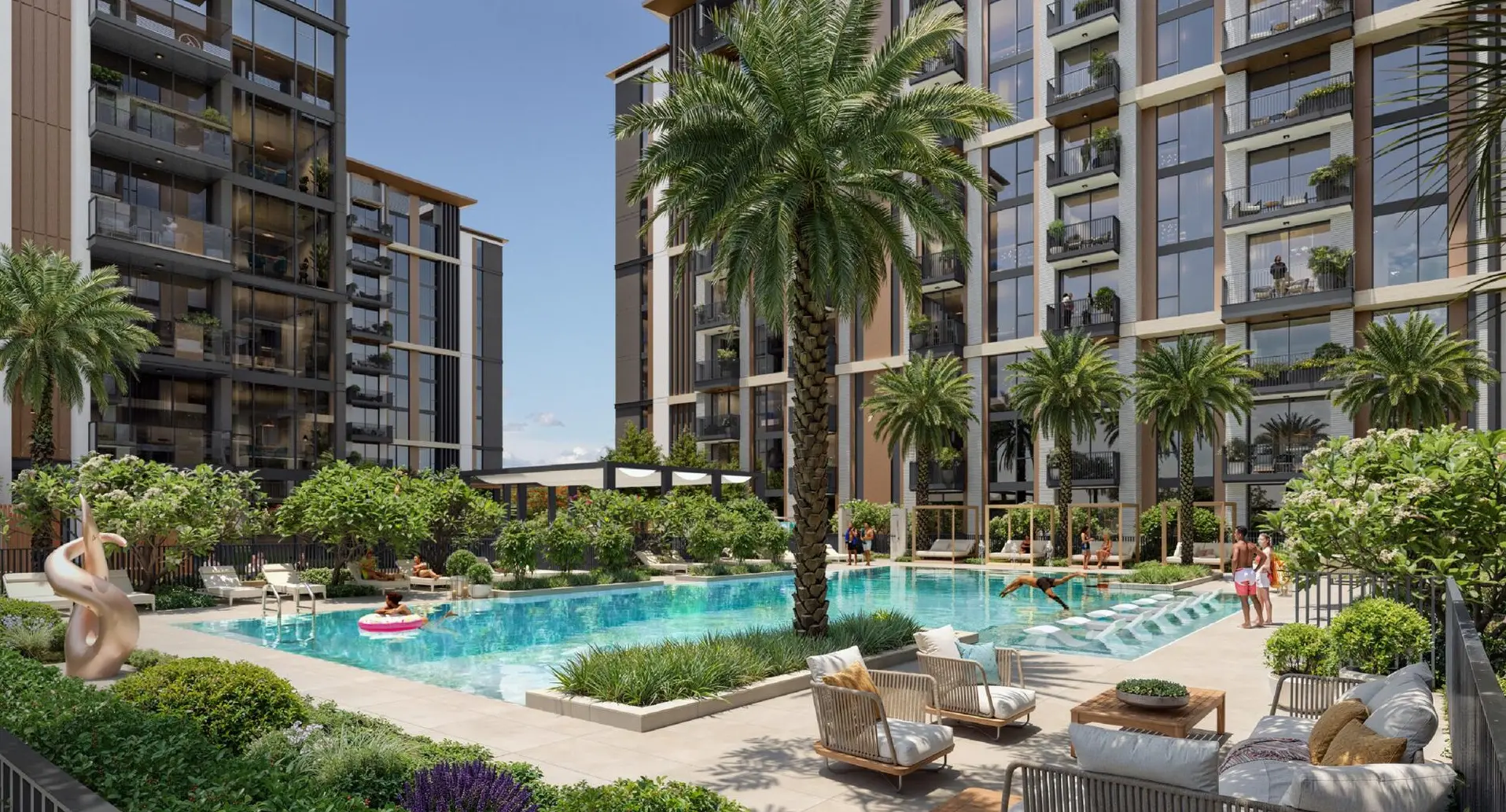
7. Golden Visa Through Property Ownership
One of the biggest incentives for buying property in Dubai is the 10-year renewable Golden Visa. This residency program allows foreign investors and their families to live, work, and study in the UAE.
Basic Eligibility:
- Minimum property investment of AED 2 million
- Property must be fully paid or mortgaged with 50% equity
- Must be residential (not commercial or off-limits zones)
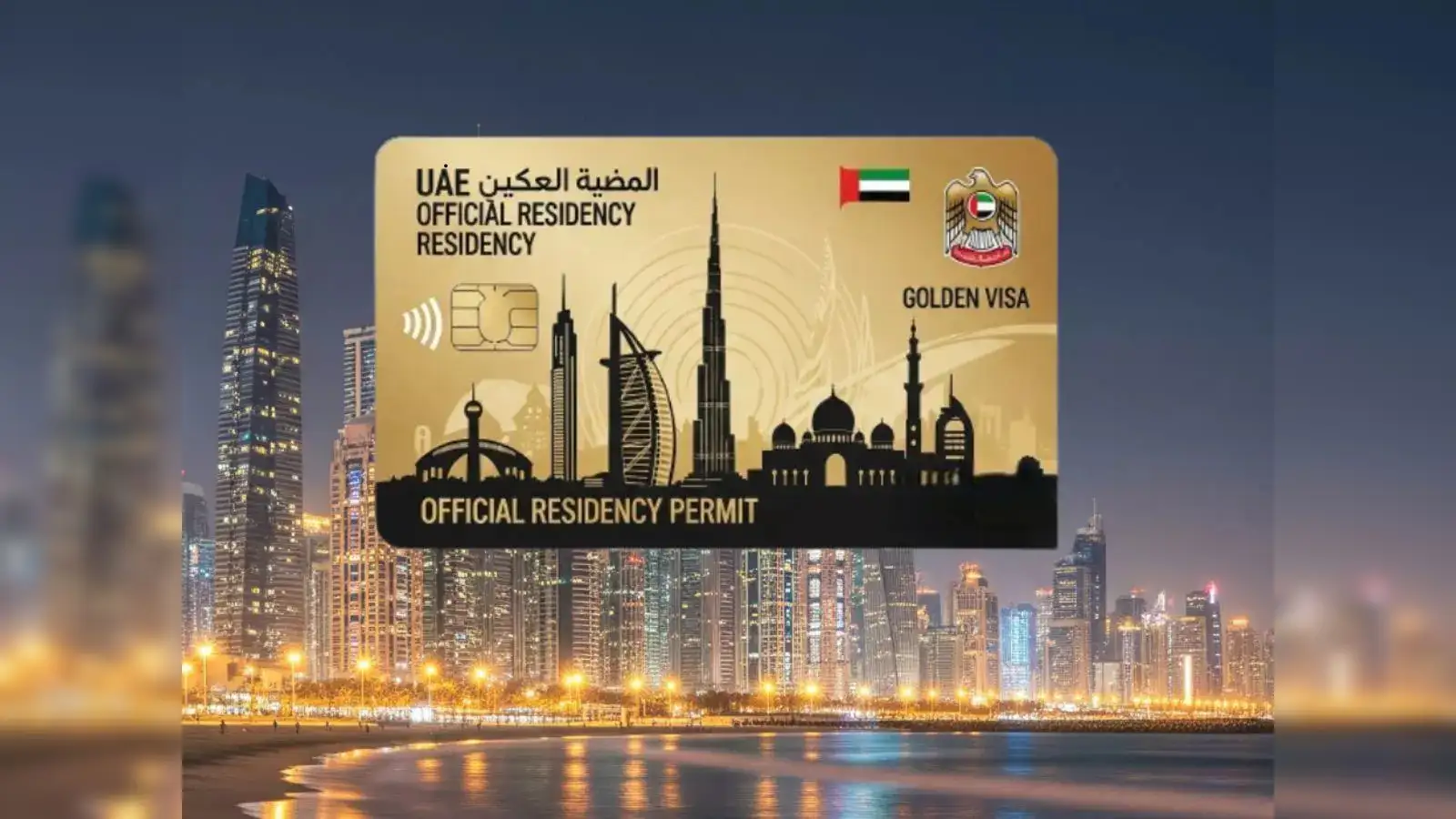
Benefits:
- No local sponsor required
- Family members can be sponsored
- Business ownership allowed
- Fast-track banking, insurance, and driving license setup
Applications can be submitted via the GDRFA or DubaiNow app. Processing time is usually under 10 working days.
Legal documents, passport scans, and property deeds may need to be shared online so it’s good practice to use VPN encryption when uploading confidential files remotely. ExpressVPN is a popular choice for high-security needs.
8. Can You Rent Out the Property? (Short-Term & Long-Term)
Yes—property owners in Dubai are free to rent out their properties either as long-term rentals or short-term holiday homes.
Long-Term Rentals
- Standard lease: 1 year
- Registered via Ejari (mandatory contract system)
- Tenants typically pay rent annually or bi-annually
- Landlord must maintain the unit and cover service charges
Short-Term Rentals (Airbnb-style)
Allowed for individual owners, as long as the following are in place:
- Registered Holiday Home Permit via Dubai Tourism
- Displayed license number on all listings
- Minimum safety equipment installed (fire extinguisher, smoke alarm)
- Collection and remittance of Tourism Dirham from guests
Short-term rentals can often generate 15–25% higher returns than long-lets, especially in tourist hotspots like Downtown, Marina, or Palm Jumeirah.
Tip: Managing short-term rentals remotely requires secure admin tools, guest communication, and payment integration.
VPN tools like Surfshark are often used by overseas landlords to manage listings without geographic restrictions or data leaks.
9. Inheritance & Legal Protection for Foreign Buyers
Dubai follows Sharia law as the default for inheritance, but non-Muslim investors can legally override this through the DIFC Wills Service Centre, which allows registered wills that follow common law practices.
Why Register a Will:
- Protect your property and bank assets
- Decide beneficiaries clearly
- Avoid delays or asset freezing
- Avoid default Sharia distribution (which may not match your preferences)
The process can be completed remotely, and the will applies only to Dubai-based assets. It’s one of the most overlooked—but essential—steps in cross-border property investment.
10. Exit Strategy: How to Sell or Rent Later
Dubai’s real estate market is still expanding, with thousands of new units entering the pipeline in 2025–2026. That creates opportunity, but also increased competition.
Selling Property:
- No capital gains tax in the UAE
- Resale possible at any time (for completed units)
- For off-plan, resale is allowed only after Oqood registration and meeting payment minimums (often 40–50%)
- Selling before handover may require developer’s approval
Renting It Out:
If your goal is passive income, focus on:
- Properties with low service charges
- High-demand locations near transport, schools, or business districts
- Buildings with proven occupancy and tenant retention
Having a plan to either sell or lease profitably based on market trends is key to long-term success.
11. Common Mistakes Foreign Buyers Should Avoid
| Mistake | Why It Matters |
|---|---|
| Buying without due diligence | Some properties look attractive but lack demand or have high service charges |
| Ignoring legal representation | Relying solely on the agent can be risky—hire a property lawyer |
| Missing payment deadlines | Off-plan buyers can lose deposits for missing scheduled payments |
| Signing documents over public Wi-Fi | Sensitive data can be compromised—use a VPN like CyberGhost when dealing with digital contracts |
| Skipping snagging inspections | Always inspect newly completed properties before handover |
12. Final Thoughts
Dubai remains a strong market for global investors—thanks to long-term residency options, no income tax, solid rental yields, and investor-friendly regulation. But success depends on preparation, strategy, and understanding the local landscape.
By working with licensed professionals, verifying all documents, and protecting your digital communications (especially from abroad), you position yourself to buy safely and profitably.
Recommended Tools for Secure Transactions (Optional Summary Table)
| Tool | Use Case | Deal Link |
|---|---|---|
| NordVPN | Securing financial data abroad | Click here |
| Surfshark | Managing property listings remotely | Click here |
| ExpressVPN | Encrypted contract uploads | Click here |
| CyberGhost | Protection on public Wi-Fi during travel | Click here |
Frequently Asked Questions About Buying Property in Dubai
Can foreigners legally buy property in Dubai?
Yes, foreign nationals can buy freehold properties in designated zones across Dubai. These include popular areas like Downtown, Dubai Marina, Palm Jumeirah, and JVC. Leasehold options are also available but offer only long-term use rights (up to 99 years), not land ownership.
How much money do I need to buy property in Dubai?
The minimum investment for residential property typically starts around AED 500,000. However, to qualify for the 10-year Golden Visa, you’ll need to invest at least AED 2 million in real estate, either fully paid or 50% mortgaged.
Are there property taxes or capital gains taxes in Dubai?
Dubai does not charge annual property tax or capital gains tax. However, buyers should budget for one-time costs like the 4% DLD transfer fee, agency commission, trustee fees, and registration charges.
Can I rent out my Dubai property as a foreign owner?
Yes. Foreign owners can rent out their property either long-term (via Ejari contracts) or short-term (via Airbnb-style holiday homes). Short-term rentals require a permit from Dubai’s Department of Economy and Tourism.

